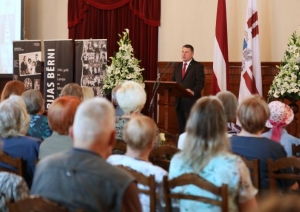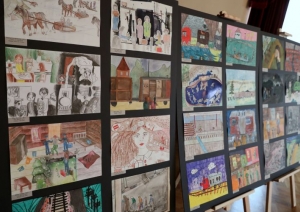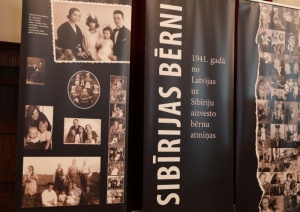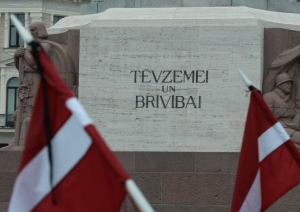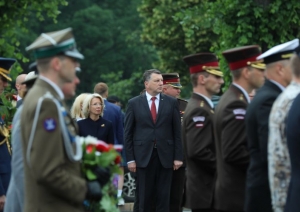I will mention three reasons, which the Freedom Monument is reminding us. That is freedom from fear. Freedom to speak. Freedom to remember.
The night from June 13 to June 14, 1941 had been continuing for many years. During that night, more than 15 thousand people were deported. Their arrest and deportation had subjected hundreds of thousands to constant fear and paralysing quandary regarding the safety of their family and their own for many years to come. The Soviet occupation regime used deportations to physically destroy our country and break our nation. Today that strikes us because we are living in safety. Those events make us think about what we are ready to do to keep our community free from fear.
The Freedom Monument is reminding us also about freedom to speak. The remembrance of the repressed is not only an internal affair of our country. The crimes of the Soviet regime are crimes against humanity. Therefore, we are obliged to continue strengthening the objective understanding of history by continuing to develop a common memory policy of the European Union, together with other Eastern European countries and the Baltic States.
Even nowadays, no fundamental assessment of the crimes committed by and the tragic history of the Soviet regime has taken place in Russia. While it is undone, the entire globe and we cannot be sure of the non-repeating history in the future.
At the time of awakening, we recovered not only our country but also our memory. This day marks thirty years since the large-scale manifestation on “The Destalinization of Latvia” of 14 June 1989. The freedom we demanded then included also the freedom to commemorate the victims and remember the heroes. Therefore, I call to honour those courageous people today who had said a clear NO to hiding the communist crimes into the darkness of oblivion 30 years ago.
Let us remember the heroes of our people and honour the memory of the victims of the communist terror forever.





